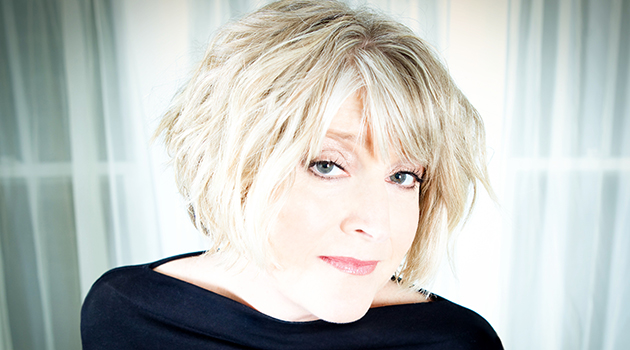Catching Up with Kim Richey

I first met Kim Richey when I was a student at the Berklee College of Music and made a special trip down to Nashville with a group of students. She was a guest speaker at a studio in Nashville’s Music Row. Kim’s down to earth persona and stories of coming to music later in life were inspiring. As her career progressed, she wrote songs that eventually found their way to artists like Trisha Yearwood and the Dixie Chicks—and garnered her a Grammy nomination. She comes to town on Sunday, April 15 to promote her latest album Edgeland and to perform as part of our Live at The Loft series. Read on for our recent conversation about life, music, and songwriting.
Q: You got your first record deal at age 37. What was that like?
A: By that time, I had pretty much given up on getting a record deal.. It is not very likely to be signed to make records on a major label for the first time at age 37. I think that being older made me better prepared in terms of what I was and wasn’t willing to do. Making records for Mercury and then Lost Highway was an amazing opportunity. When I was signed, I figured I would get to make one record. In the end, I made four major-label records and had the opportunity to work with incredible musicians and producers. Mercury never tried to make me into something I wasn’t musically or image-wise. I am grateful for the chance they took and am still recording and touring some 20 years later.
Q: What role had music played in your life up until that record deal?
A: I have always loved singing. I sang in choirs in church when I was young and all throughout school. I played in bars when I was at university but stopped playing after I graduated. After college I moved to Colorado with a bunch of school friends. I had a degree in Environmental Ed. I worked at Nature Centers, a Raptor Rehab facility, as a temp in offices, and in restaurants (cooking primarily but also bartending, waiting tables, and managing). I still loved singing but never had the opportunity to play music professionally until I moved to Nashville in 1988, when my close university friend Bill Lloyd, who was in the duo Foster and Lloyd then, talked me into it.
Q: Where is home for you these days?
A: I am based mostly in Nashville right now. I moved back about 6 years ago.
Q: How would you describe the music scene in Nashville for artists?
A: Nashville is loaded with inspiration! There is no other place like it. People come from all over the world to write and record in Nashville. The caliber of songwriters and musicians there is incredible and it is definitely not just country music.
Q: What was it like hearing your songs being performed by artists like the Dixie Chicks and Trisha Yearwood?
A: To think, out of all the songwriters and all the great songs written by the those songwriters, there was something about a song I wrote that inspired them or connected with them enough to include it on an album or even to just play it live, is amazing.
Q: Can you describe your songwriting process? Do you co-write?
A: I think of myself mostly as a singer. I write to have something to sing and to express myself when I am unable to in any other way. Usually, I start with a musical idea. I love collaborating with other songwriters. It makes me look at things a little differently than I would on my own and end up some place I might not have found by myself.
Q: Who are you currently listening to?
A: My favorite album of this year was without a doubt Aimee Mann’s Mental Illness.
Q: You are touring behind your latest album, Edgeland, your first album in five years. What did you do with your time away from the studio?
A: In the five years since my last album I have been touring, teaching, and writing songs. It also takes time organizing the recording and release of an album.
Q: Do you prefer to perform on a particular type of guitar?
A: I have two favorite acoustic guitars. One is a 1956 Gibson J-50 and the other is a 1969 Epiphone made by Gibson. I reckon that makes me a Gibson girl.
